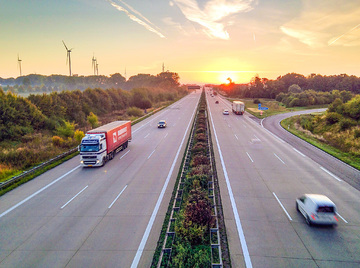UFOP calls for abolition of double counting and stricter fraud prevention
Another company in the GHG quota trading sector has to file for bankruptcy
Berlin, 4 June 2025. Following the ADAC's withdrawal from GHG quota trading at the end of the 2024 quota year, EMOVY GmbH is another company to exit this trading business with the opening of insolvency proceedings. The Union for the Promotion of Oil and Protein Plants (UFOP) considers this and earlier insolvency proceedings in this still young industry to be collateral damage from the increasing number of cases of fraud involving imports of biodiesel and HVO from China and, most recently in spring 2025, from a non-existent HVO plant in Dubai.
 The economic consequences of the fraud for the German and European biofuel supply chain are dramatically exacerbated by the double counting of the fraudulent quantities against GHG quota obligations. The fall in GHG quota prices to 80 to 90 EUR per tonne of CO2 is an indicator of the excessive ‘supply volumes’, the consequences of which are being felt as far as the pricing of oilseeds, emphasises UFOP. The resulting displacement effect is leading to export and price pressure for biofuels. Although the statutory GHG quota obligation increased from 8.0% to 9.36% in 2024, the share of physical admixtures of biofuels to fossil diesel fuel fell from 2.621 to 2.065 million tonnes over the same period. This is mainly due to the high proportion of biofuels from waste in accordance with Annex IX Part A of the Renewable Energy Directive (RED II). The previous German government had been able to pull the legal ‘emergency brake’ with its cabinet decision to suspend the GHG quota transfer for two years, but this merely postponed the problem. As a result, GHG quota trading collapsed. This mainly affects companies that generate or generated corresponding GHG quotas in the field of e-mobility. At the time, this value-added effect was politically desired as a contribution to financing the expansion of the charging infrastructure. This contribution is now increasingly disappearing.
The economic consequences of the fraud for the German and European biofuel supply chain are dramatically exacerbated by the double counting of the fraudulent quantities against GHG quota obligations. The fall in GHG quota prices to 80 to 90 EUR per tonne of CO2 is an indicator of the excessive ‘supply volumes’, the consequences of which are being felt as far as the pricing of oilseeds, emphasises UFOP. The resulting displacement effect is leading to export and price pressure for biofuels. Although the statutory GHG quota obligation increased from 8.0% to 9.36% in 2024, the share of physical admixtures of biofuels to fossil diesel fuel fell from 2.621 to 2.065 million tonnes over the same period. This is mainly due to the high proportion of biofuels from waste in accordance with Annex IX Part A of the Renewable Energy Directive (RED II). The previous German government had been able to pull the legal ‘emergency brake’ with its cabinet decision to suspend the GHG quota transfer for two years, but this merely postponed the problem. As a result, GHG quota trading collapsed. This mainly affects companies that generate or generated corresponding GHG quotas in the field of e-mobility. At the time, this value-added effect was politically desired as a contribution to financing the expansion of the charging infrastructure. This contribution is now increasingly disappearing.
Against this background, the UFOP strongly urges that any suspected fraud be investigated promptly and prosecuted. In addition, certification systems must be monitored more closely and held to account in order to counteract and, ideally, prevent further cases of fraud. This applies in particular to the registration of installations by certification systems and their certification bodies. The question of compliance with due diligence obligations must also be examined in terms of liability law. This applies to both plant registration and the verification of GHG calculations and raw material origins. The report by the Federal Office for Agriculture and Food (BLE) shows, for example, a questionable GHG reduction of over 130% for ‘cultivated biomass’ for imported biodiesel from Ethiopian mustard.
The UFOP demands that the double counting of biodiesel, HVO and the raw materials used in coprocessing in the refinery process be abolished as a major cause of the incentive to commit fraud. This misguided incentive leads to uncontrollable displacement effects of waste streams (reclassification of waste from category B to category A), as these raw material quantities are only available in limited quantities. It should be noted that in Germany, the simple crediting of biofuels from Part B of the Annex is limited to 1.9%, measured in terms of final energy consumption in road transport. For Part A, on the other hand, there is no quantity limit for double crediting once a minimum quota has been met. This design flaw in the law must now be corrected by the federal government in its draft amendment to the Federal Immission Control Act, which is expected before the summer recess. The law serves to implement the amended Renewable Energy Directive (RED III), which, according to the directive, should have been completed by 21 May 2025.
The UFOP expects the new federal government to abolish double counting and, at the same time, to increase the GHG quota obligation in line with the growing range of other compliance options, such as emobility.
Download is here available


 Union zur Förderung von Oel- und Proteinpflanzen E.V.
Union zur Förderung von Oel- und Proteinpflanzen E.V.